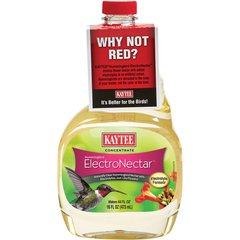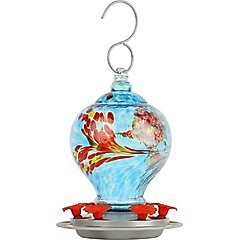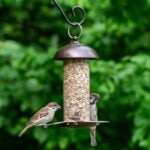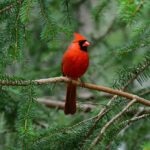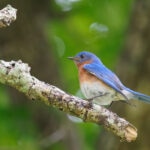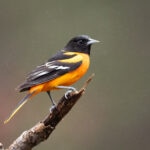What Do Hummingbirds Eat?
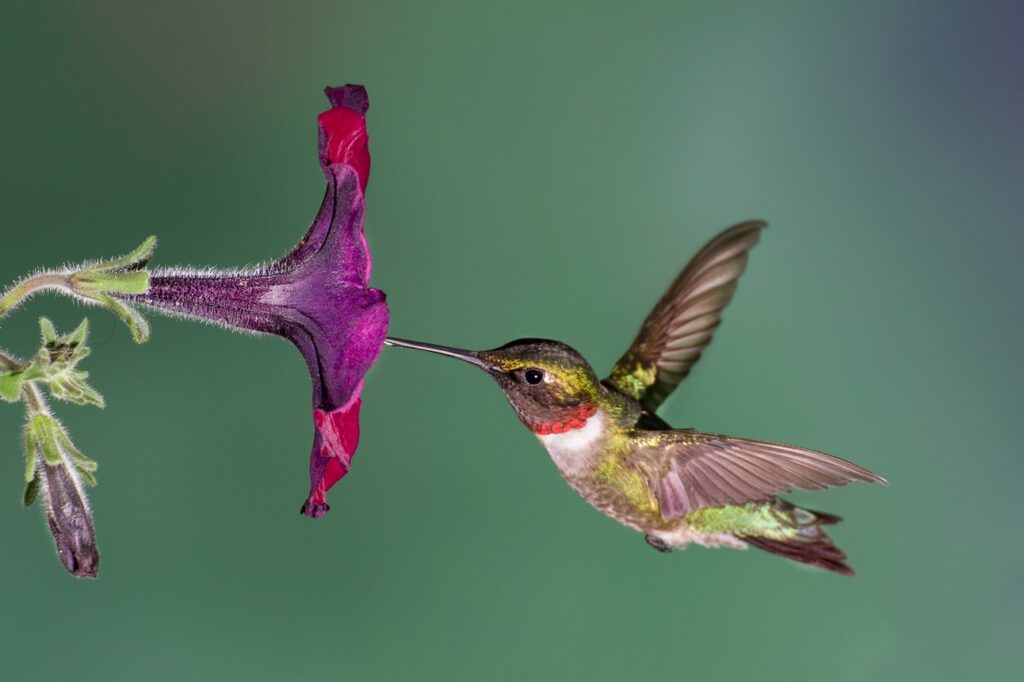
Photo by MattCuda/iStock / Getty Images Plus via Getty Images
Tiny, fast, and endlessly fascinating, hummingbirds are a favorite among backyard birders. If you’re hoping to get those tiny helicopter wings abuzz in your own yard, the first step is making sure you’ve got the right habitat for them to thrive, including food sources to meet their high energy needs.
But what do hummingbirds eat, exactly? The answer is a little more complicated than just sugar water—though that’s one way you can help support the hungry little creatures who visit your garden.
Key Takeaways
- Hummingbirds eat nectar and small insects like gnats, fruit flies, and spiders to meet their high energy needs and nutritional requirements.
- Planting native, nectar-rich flowers such as bee balm, coral honeysuckle, and cardinal flower is the most effective way to support hummingbird populations.
- Avoid using pesticides in your yard, as they can poison the insects hummingbirds rely on and harm other pollinators like bees and butterflies.
- Place hummingbird feeders in quiet, partially shady areas near native plants and water sources, and away from predators and windows.
What Do Hummingbirds Eat?
There are two main staples of the hummingbird diet: nectar and insects.
“It’s common knowledge that hummingbirds are nectar feeders,” says Tom Brown, site manager at the Paton Center for Hummingbirds in southeast Arizona. “But a very large part of their diet comes from small insects and gnats that they catch on the wing.”
One hummingbird might visit hundreds of flowers each day for nectar and still supplement its diet with insects. This is why David Mizejewski, a naturalist with the National Wildlife Federation, says landscape choices are key for creating a hummingbird oasis that supports their full diet—including bugs and native plants they can get nectar from naturally.
What To Feed Hummingbirds
A great hummingbird landscape offers plenty of food sources. Well-placed hummingbird feeders are a good supplement, but the best way to feed hummingbirds comes from planting native flowers.
“They need small flying insects in order to feed their babies … [and] feeders aren’t a habitat, just a sugar solution that mimics nectar,” Mizejewski says.
Native Flowers
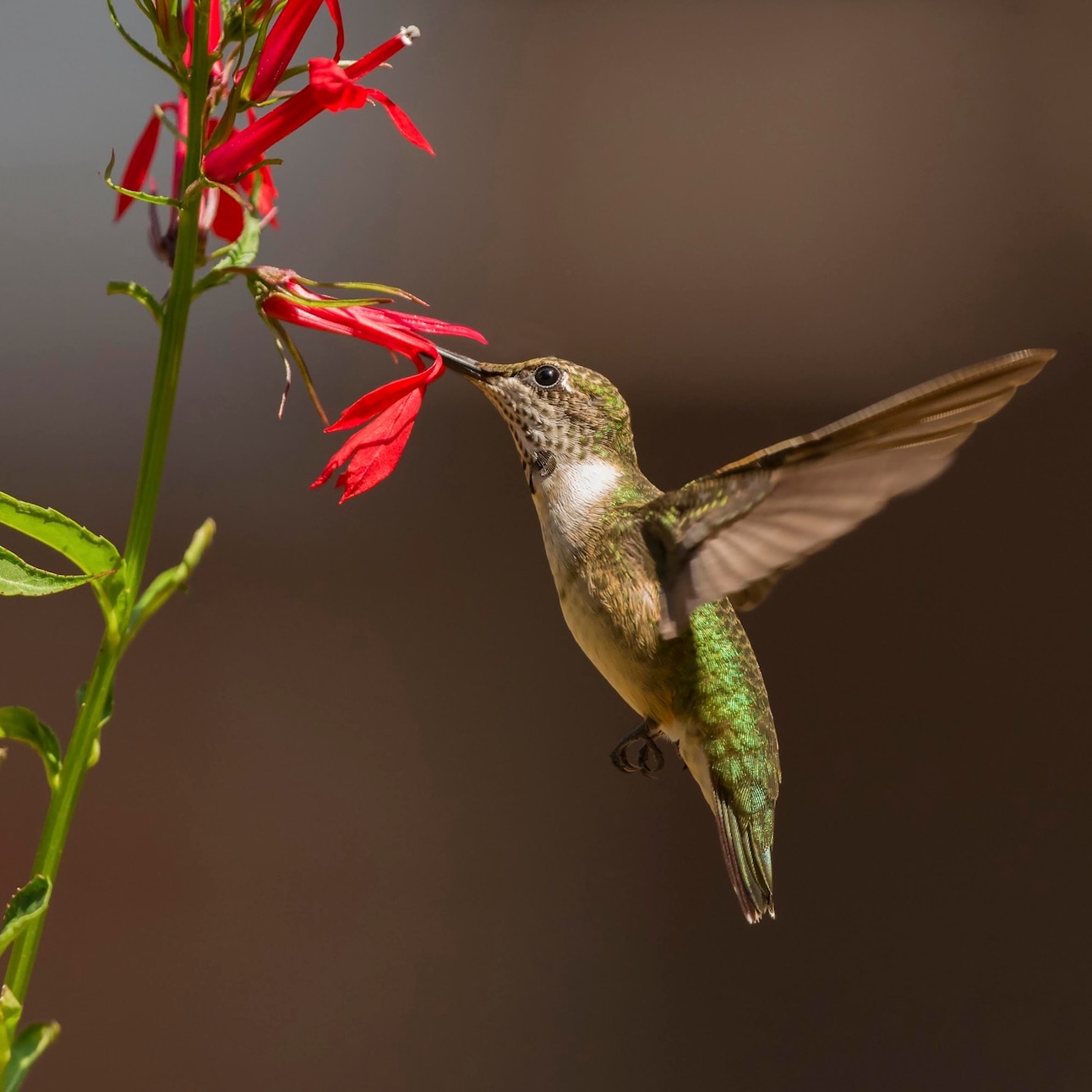
CarolinaBirdman/iStock / Getty Images Plus via Getty Images
Mizejewski recommends building up a landscape of native plants and flowers that will attract hummingbirds and allow them to raise their young. “Native plants don’t just provide a nectar source, they also provide the habitat they need, and habitat for the small insects they need to feed on,” he says.
Not just any flowering plants will get hummingbirds’ attention. As pollinators, hummingbirds have evolved specifically to accommodate the pollination needs of tube-shaped flowers, as their long beaks are a perfect fit for reaching nectar deep inside the flower.
The types of plants hummingbirds like depend on where you live, but nectar-rich native flowers are a good place to start. These include:
- Bee balm
- Coral honeysuckle
- Sage
- Cardinal flower
- Buckeye
- Trumpet honeysuckle
Because hummingbirds feed on so many insects, Mizejewski also warns against using any pesticides in your yard. “Hummingbirds—and all birds—will eat those small bugs and get very sick and even die,” he says. Pesticides can also cause great harm to other pollinators like bees and butterflies.
Hummingbird Feeders
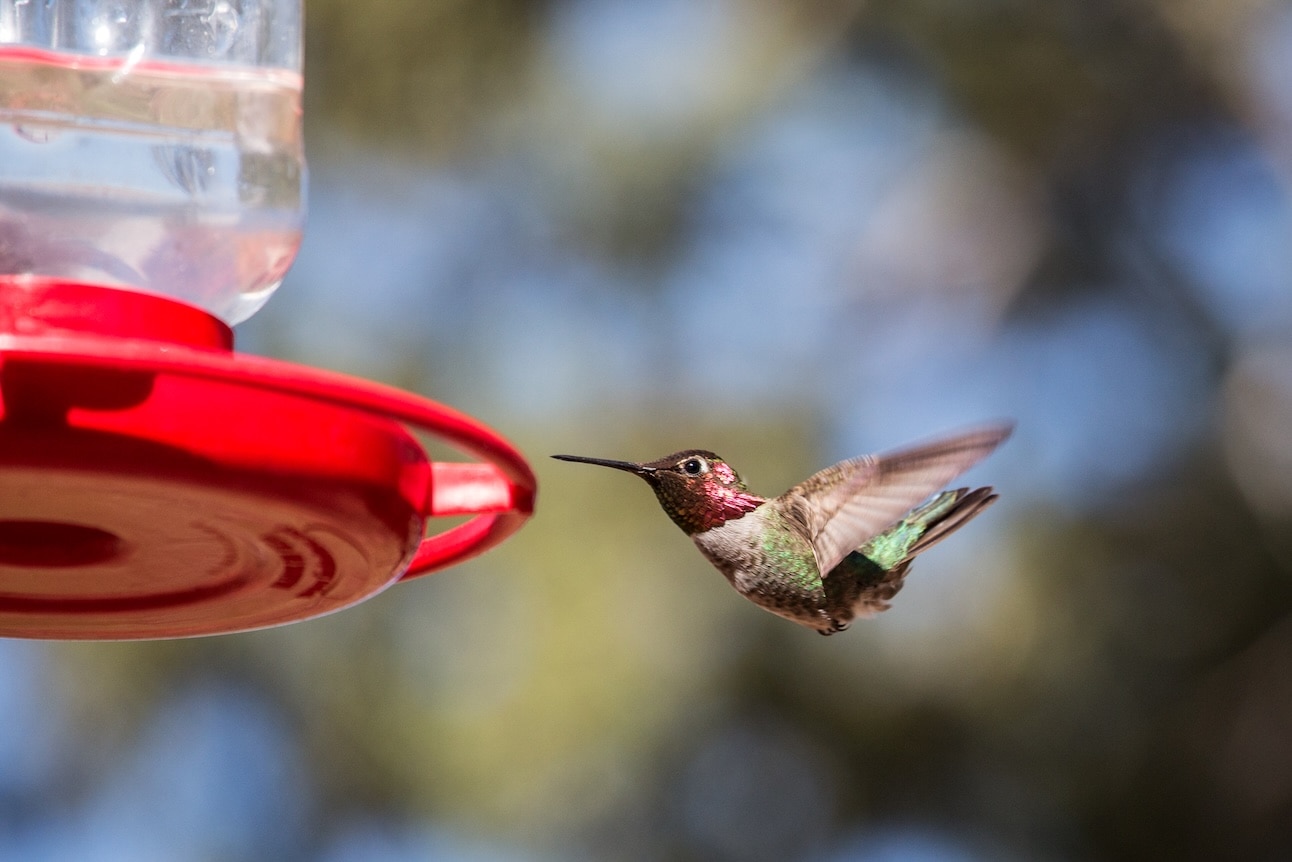
jgareri/E+ via Getty Images
Hummingbird feeders can also supplement flower grazing and support the birds’ endless appetites.
You can purchase hummingbird nectar for a feeder or create your own hummingbird food by mixing pure cane granulated sugar with water at a 1:4 ratio. This “duplicates the natural nectar that hummingbirds find in our local flowering plants,” Brown says.
Recommended Products
It’s important to clean your hummingbird feeder every three days—if you live in a warm climate, you might need to clean it more often—to prevent mold from developing, which can be fatal to these little birds. Thoroughly wash and rinse the feeder with hot, soapy water between feedings.
Where Should You Hang a Hummingbird Feeder?
Mizejewski and Brown say you’ll have better luck attracting hummingbirds to your yard—and your feeder—if it’s placed:
- In a quiet spot near sheltering plants or shrubs where the birds can perch between feedings
- Near native flowering plants
- Close to a fresh source of water, like a fountain, stream, or mister
- Out of reach of predators like cats
- In partially shady areas to help prevent the nectar from spoiling too quickly
- Far from other hummingbird feeders to prevent territorial behavior
- Away from windows to reduce collisions
“Hummingbirds suffer from colliding into windows, just like many other species,” says World Wildlife Fund spokesperson Danielle Brigida. She says paying attention to where you put your feeder and making your windows more bird-friendly can help keep your flighty friends safe.
How Often Do Hummingbirds Eat?
Though tiny, hummingbirds are known for their voracious appetite and super-high metabolism. It takes a lot of energy to fuel their thousand-mile migratory trips across the globe, and all that flight requires frequent trips to flowers and feeders.
According to the Audubon Society, hummingbirds must eat once every 10–15 minutes and visit between 1,000 and 2,000 flowers per day to sustain their energy needs. During migration, these tiny pollinators may double their weight and eat almost constantly to fuel long-distance flights.
Hummingbird Feed FAQs
Do hummingbirds eat bugs?
Yes—tiny insects like fruit flies, gnats, and spiders provide essential nutrients for hummingbirds. Because bugs are such a crucial part of their diet, avoid pesticide use around your yard.
Do hummingbirds eat mosquitoes?
Yes, along with other small bugs, hummingbirds will sometimes eat mosquitoes—especially if they are flying low near flowers or feeders.
What is the best thing to feed hummingbirds?
The best way to feed hummingbirds is to plant native tube-shaped flowers. You can supplement a hummingbird’s diet with a mixture of pure cane sugar and water.
Should hummingbird feeders be placed in sun or shade?
Partial shade might be the sweet spot, though both Mizejewski and Brown point to frequent feeder cleaning as the best way to mitigate issues caused by spoiled nectar—not necessarily too much sun.
What kind of plants attract hummingbirds?
Native plants that produce brightly colored, tube-shaped flowers are best for attracting hummingbirds. The specific plants vary depending on where you live, so check with your local garden center for recommendations.
